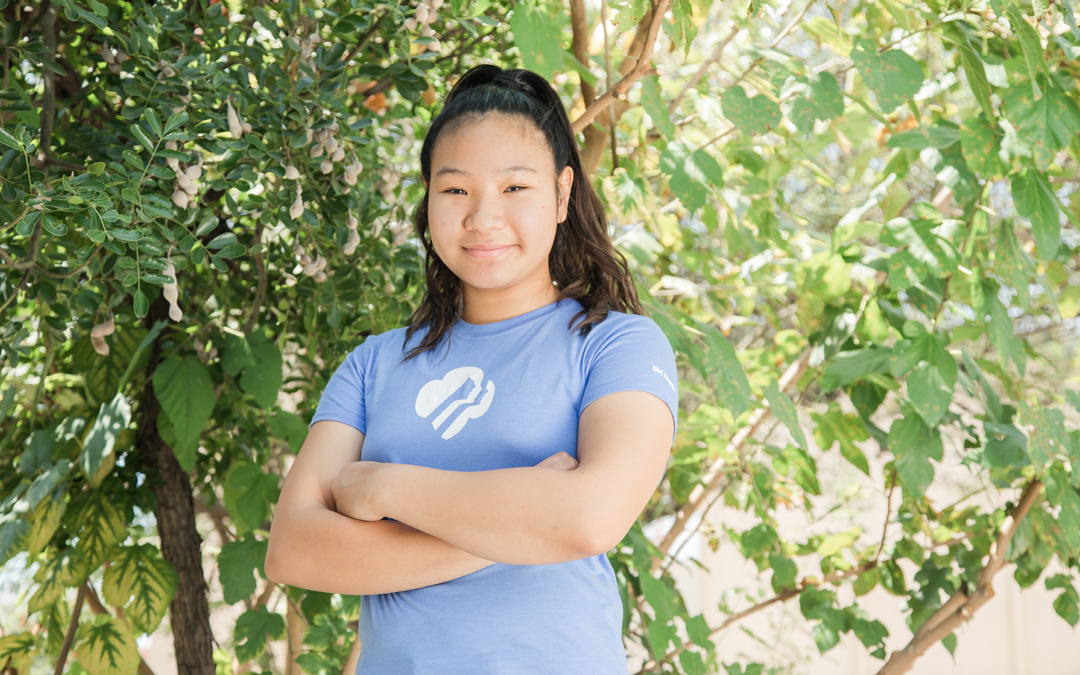Girl Scout or not, we’ve all heard the word “adulting,” a word that refers to all of the tasks and responsibilities we take on as we transition from childhood to adulthood. Research on how kids respond to and recover from a crisis focuses on the six elements of resilience: connection, routine, belonging, expression, participation, and empowerment. “Adulting” skills are an amazing way to give kids a routine role in their family lives that makes them feel connected and empowered to help out in an age-appropriate way.
Save it for later!
Introducing these skills to girls at a younger age also prepares them to grow in self-confidence and succeed in life as an independent adult. How many people in college did you meet who didn’t know how to make themselves dinner, or do their own laundry? How often do you wish your parent had taught you how to jumpstart your car, or sew on a button? Giving kids useful tasks equips them with skills for their future, helps them feel important and useful in your family, and gives them a sense of pride in their own accomplishments. Introduce them in a virtual or in-person troop meeting, or work with parents to facilitate at-home learning and engagement on these topics! Support your girls’ independence and empowerment with these ideas for building adulting skills in Girl Scouts:
Daisies (Kindergarten and First Grade)
At this age, girls are spending most of their energy growing and learning at school, but it’s a perfect age to start introducing simple chores and concepts around responsibility and working together. Focus more on the attempt and the interest than the success at any individual task! Life skills for kids at this age include:
- Learning to put away toys and books
- Clean up small self-made messes and spills
- Put their laundry in the hamper
- Water plants or feed pets
- Make an easy snack out of pre-cut items
Brownies (Second and Third Grade)
As girls grow, their ability to focus on a task or remember to do a chore regularly improves. Try introducing them to new skills and expect more from the skills they already know. Connect these skills with quality family time to make the work feel more meaningful, like folding laundry while you watch a favorite show together, or prepping for a nice family dinner. Great “adulting” options for girls this age are:
- Set the table for dinner
- Sort and fold laundry
- Take out the trash
- Make their bed
- Unload utensils from the dishwasher
- Help pack their own lunches

Juniors (Fourth and Fifth Grade)
By now, girls start to be interested in more freedom, which is an excellent time to introduce them to more exciting and advanced skills! Some of these will still need parent or adult supervision, but letting your girl take the lead can help them feel ownership as they learn a new skill. Remember that just because they can do more things doesn’t mean they should take on adult-level responsibilities. School, play, and growth are still their biggest and most important job. Here are some life skill ideas for Junior-aged girls:
- Learn to cook basic foods (scrambled eggs, bake cookies, carefully chop vegetables) or bake simple recipes
- Walk the dog
- Load the dishwasher or wash dishes
- Learn to run the washing machine
- Put groceries away or help make a grocery list
- Clean the Bathroom
- Vacuum
Cadettes (Sixth, Seventh and Eighth Grade)
Your older girls start to really explore having a life independent of the family sphere. They may be less interested in what they perceive to be “chores,” so pitch these as life skills or ways to explore new areas of interest.
Focus more on giving them the tools to learn. If you want to begin giving your girl an allowance, tie it into increased responsibility. This is a great way to both motivate her to engage with these responsibilities, and also demonstrate that her work has value. Great options for girls this age are:
- Make a whole recipe, or bake something more complex on her own (A great time to pass down some family-favorite recipes!)
- Mow the lawn or take charge of part of the garden
- Learn to change lightbulbs safely and similar household maintenance tasks
- Repair their own clothes (sew on buttons or fix a ripped seam)
- Learn how to get different kinds of stains out of materials
Seniors (Ninth and Tenth Grade)
Girls at this age are busy with friends and new freedoms, so let them take the lead. Are there skills they might want or need in order to succeed at activities they are already interested in? “Adult” skills that teenage girls can grow in at this age include:
- Make and balance a budget for their own goals
- Earn money at home or at a local job to save up for something they want
- Learn to change a tire or jumpstart a car (especially attractive to girls who are eager to learn to drive)
- Make dinner for the family once in a while, trying out whatever recipe or food they are most excited about
- Include them when you do your research to vote in local, state, and national elections!
Pro-Tip: Encourage your Girl Scout to create a SMART goal if she wants to master certain skills or tackle a specific project.
Ambassadors (Eleventh and Twelfth Grade)
Girls at this age are headed toward young adulthood at lightspeed! Think about the skills you wish you had when you left home for the first time. Take them with you on errands, have them schedule their own appointments (with support if they need it) and empower them to make as many decisions as is appropriate for their lives. They’ll be the ones “adulting” sooner than you think! Great options for your soon-to-be-adult girls are:
- Have them schedule their own doctor and dentist appointments.
- Walk them through how to do your taxes online with you, or help them do their taxes if they have their own job and income already!
- Learn how to make a resume and practice interview skills.
- Learn how to find and rent an apartment (using craigslist is a great way to learn how to sort the scams from the good deals!)
- If they can drive, have them run errands occasionally like grocery shopping.
- Once they are of age, help them open a low-limit basic credit card and teach them how to pay it off completely every time they use it to build good credit
Remember, chores are for everyone! At home and in meetings you can model good gender roles by having all volunteers or family members, adult and kid alike, participate in whatever responsibilities need doing. Don’t associate certain chores or skills as “for boys” or “girl-only”—boys should learn to cook just as much as girls should learn to change a tire. These skills build good adults, and help kids to grow up expecting to share responsibility equally with housemates or partners, regardless of traditional societal power dynamics.
Giving girls new responsibilities is for their benefit and growth, and shouldn’t make them feel burdened or like they have to be a parent or adult in your troop or family. We want girls learn new things, feel pride in their accomplishments, and learn how good it can feel to be responsible and help the people they love, but their main job as kids is to grow, learn, and play!
These are all just examples of adulting skills that girls can learn at all ages. Feel free to tailor them to your family, house, troop meetings, or girl’s interests. What kinds of skills do you remember learning as a kid, or hope to teach your girls as they grow older? Share with us in the comments!
What to do next:
- Learning a new skill can be intimidating. Encourage your girls to have a growth mindset as they start off.
- Let your Girl Scouts take lead the way in their troop meetings.
- Get your Girl Scouts involved with leading activities for younger girls to build their leadership skills.

Katie Mock—Katie is the Marketing Copywriter for the Girl Scouts of Northern California, where she writes everything from tweets to Trailhead articles, and makes sure everyone dots their ‘i’s and crosses their ‘t’s. Although she was a Girl Scout for only a few years, her experiences with Girl Scouts, combined with attending a single-sex high school, gave her a profound appreciation for the power all-girl spaces have to change girls’ lives for the better. Katie moved to the Bay Area after graduating from the University of Chicago with a B.A. in Linguistics; when she’s not diving into writing with a red pen, you can find her geeking out about the latest sci-fi novel, cooking anything from traditional Japanese Cuisine to pizza, or cuddling her two cats.


Thank you for putting this list together. So many of these life skills are ones we hope our girls are being exposed to and sharing with others throughout the time they are in Girl Scouts and beyond.
Older girl trips can use the patch program developed by our Girl Scout Alumnae on adulting skills.